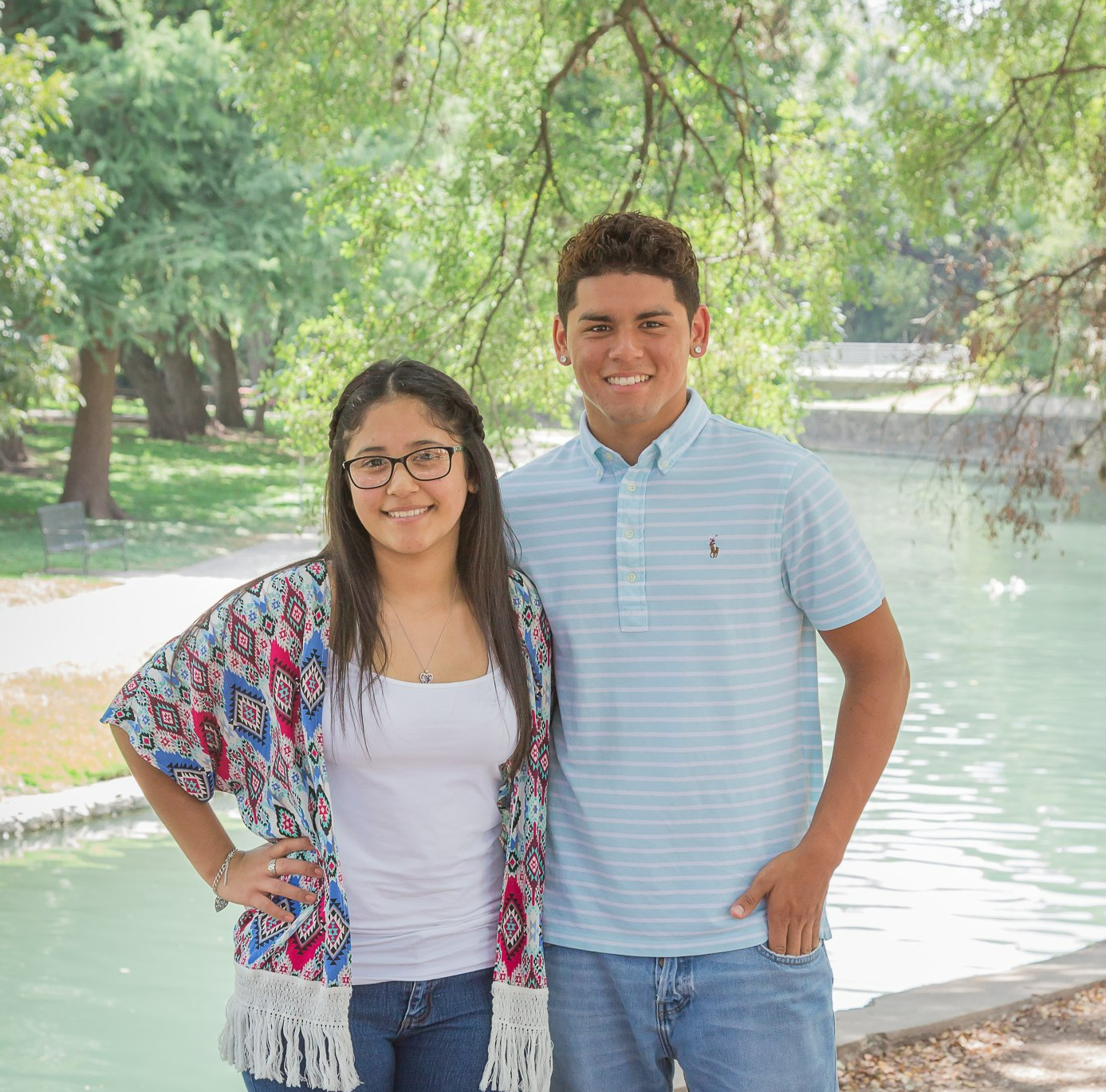To Busy to Continue Casa Advocacy Steps Down From Casa Advocate

September Advocacy Tip
Educational Advocacy As summer break comes to an end and the focus shifts to returning to school with buying new clothes, getting school supplies, and catching up with school friends, it's natural for kids to get excited for the start of a new year. While children in foster care might also feel the excitement, there is a high probability that returning to school could be met with anxiety, which is very understandable. Part of an advocate's role is to assist in this transition and to advocate to ensure the child's educational needs are met. The CASA advocate has the right to review a child's educational data, communicate with school staff, and attend educational meetings. In your advocacy role, be proactive by building a strong positive rapport with the child's school. Below are some ways to help foster a positive relationship: · Contact the school (school counselor, teacher, principal). · Send an introductory email to introduce oneself and to explain CASA's role in the child's education. · Schedule a time to visit the school and meet with the teacher and with other school staff to meet in person and possibly visit with the child. · Provide a copy of the Court Order and a copy of your CASA badge. · Visit the school and meet with teacher and any other staff member that is involved in the child's education. Restate your role and offer how you can support the child in their education. · Advise that you would like to attend all educational meetings such as 504s and ARD's. · Communicate any behavioral triggers that would help the staff best know how to address the child to provide the best outcome. · Maintain ongoing contact with school staff and report any concerns that you might have. Regular contact with school personnel is important to ensure the child is progressing in their academics and if concerns arise then these can be addressed as needed. Advocates are very important members of the child's educational team. Some caregivers may be kinship family members that have not been involved in the school system for years and some foster parents may not have experience in working with the school system. CASA advocates can guide these individuals within the system and help ensure that all the child's needs are being met while in care.

July Advocacy Tip
CWOP—Children without Placement The foster care system in Bexar County is in crisis. Due to the lack of an adequate number of licensed foster homes and residential treatment centers in Bexar County each month there are a number of children without placement (CWOP). The youth spend the night in CPS offices or hotels. These children and youth are often children and youth with behavior issues such as aggression and running away. These children are difficult to place in traditional foster homes and have a higher level of care. Since December 2021 there have been three district court judges that are holding hearings for children without placement. In March 2022 a teenager in CWOP placement in a hotel was shot. This was very difficult for judges and child advocates to hear. 45th Civil District Court Judge Mary Lou Alvarez is one of the judges hearing CWOP cases. "I do think the department is making it a priority, but I think they have a lot of work to do and they still have to get that sense of urgency," Alvarez said as reported by KSAT news on 4/14/2022. Judges are holding CWOP hearings every 7-10 days to ensure that CPS continues to make these cases a priority. CPS, CASA and other interested parties are held accountable for the efforts they are making in finding placement for these children and youth. What can a CASA volunteer advocate do? As a CASA volunteer advocate you can make sure you are staying involved in the case. Instead of monthly contact, you may need to have weekly contact with the caseworker, child/youth and ad litem as well as your CASA Advocate Supervisor. Be prepared, if at all possible, to attend the CWOP hearings. We recognize that this is an additional requirement above mandatory requirements, but your CASA child/youth is in crisis. You have a relationship with this youth and can continue to be a meaningful support. If your child is in CWOP, please contact your CASA Advocate Supervisor to determine the next steps on your case and how you can continue to have meaning impacts as to the best interest of your CASA child/youth.

June Advocacy Tip
Ongoing Training As a CASA volunteer, your education does not end after you begin your first case. The advocacy you provide is unique to your CASA children and is based on their individual needs. On-going training helps strengthen your advocacy skills so that you can best advocate for the specific needs of your CASA children. In addition, national, state, and local standards require that a CASA volunteer complete at least 12 hours of ongoing training each fiscal year, July 1st—June 30th. There are many ways to learn, train and stay up-to-date with the most current changes in the child welfare system. Continuing Education Trainings Currently, most of our continuing education trainings are held virtually. Each month, volunteers can receive a schedule of the next two months of training sessions. This schedule is published on the CASA website and in the monthly Volunteer Newsletter. Once you select a specific training and RSVP to participate, you will receive a confirmation email with instructions for virtual participation. When you participate in a training session, please ensure that you sign-in to receive credit for your attendance. Your training facilitator will discuss how to sign in at the beginning of your training session. Your training hours are added to Optima by our training staff. You can reserve your spot by following the steps below: Go to www.casa-satx.org Find the tab that says "For Advocates" Register for your desired training Advocate Tips Advocate Tips can be found in the monthly Volunteer Newsletter. They consist of a brief article related to CASA advocacy, which is followed by 3 or 4 short questions. To receive 1 hour of credit, read an article, answer the questions at the bottom of the article correctly and hit the "submit" button. You will receive a confirmation email and your hours will be added to Optima by our training staff. External Training Sessions Many agency partners and other outside organizations offer excellent training sessions that are relevant for CASA advocates. These courses are offered in different formats. Many of these courses issue a certificate of training, confirmation email or training agenda. To receive CASA training credit for your external training session, please follow these steps: Email the document verifying your training session (such as your certificate or confirmation email mentioned above) to your CASA supervisor Your supervisor will enter the appropriate credit into Optima after they have reviewed your document Alternatively, you can add your own training hours (and any associated mileage) to Optima along with emailing your CASA supervisor the related document for review and approval. To add your own training hours in Optima under your volunteer profile: select Training, Add In-Service Training, Outside Training as the Training Topic, and External Webinar or External Training as your training option. Texas CASA E-College ( https://texascasa.org/casa-college-e-le arning/ ) Texas CASA E-College is a free online resource for CASA training. The Texas CASA website keeps track of all the courses that you complete and creates a transcript for you. Go to the website listed above, create a log-in if you are a first time user, and enroll in and complete your selected course. To access your transcripts, sign in to the same website and click the on the Main Menu and select 'Transcript'. You will see all of your earned credit through CASA College E– Learning. To receive credit follow these steps: Email your Texas CASA transcript to your supervisor and your supervisor will add your training hours after reviewing your transcript. Alternatively, you can add your own training hours to Optima and email your supervisor the transcript for review and approval. To add your own training hours in Optima under your volunteer profile: select Training, Add In-Service Training, Outside Training as the Training Topic, and External Webinar as your training option. College Course Credit If you have recently completed a college course that is relevant to your role as a CASA volunteer, please let your supervisor know so they can evaluate it for training credit with CASA. You need to have completed the course with a passing grade of C or higher. CASA will issue you the same number of credit hours of training as the college or university issues. For example, a 3-hour credit class will count as 3 hours of on-going training credit. Some examples of college courses that would be relevant to your CASA volunteer work include courses in psychology, social work, childhood development. To receive credit follow these steps: Email copy of unofficial transcript showing a passing grade of a C or higher to your supervisor and ask your supervisor to add your training hours Alternatively, you can add your own college courses to Optima and email your supervisor your transcript for review and approval. To add your own college course hours into Optima under your volunteer profile: select Training, Add In-Service Training, Outside Training as the Training Topic and Other as your training option. Other ways to earn training credits: For more ways you can earn credit for ongoing training hours, visit our CASA website under Resources . Here you will find the document titled "Training Fact Sheet" along with much more information.

May Advocacy Tip
Court Reports Court reports are very important for each of our CASA cases. Ensuring you are making contact with as many collaterals in your case allows you the opportunity to make the most informed decision for your CASA children. Your court report should be concise and clear. Our Judges have heavy dockets and are hearing numerous cases throughout the day therefore it is important that we are clear on what our concerns are and provide a recommendation for each of our concerns listed. We must always ensure that we are having regular communication with CPS caseworkers and attorneys regarding our concerns and allowing the concerns to be addressed. We are all working together for the best interest of the children so it would not benefit children to not address our concerns with all the parties involved. Time is also crucial when submitting court reports to supervisors. Submitting court reports 10 days prior to your court hearing allows your supervisor sufficient time to review, make suggestions, ask questions and get the court report filed with the court no later than 3 days prior to the hearing. Advocates put several hours each month gathering as much information as possible and if a court report is not filed with the minimum of 3 days prior to the court hearing an attorney can request that your court report not be admissible for that hearing. It would be unfortunate for that valuable information to be lost due to a court report not being filed timely. It is very important that detailed information is included in the court report such as: dates of medical, dentals, psychological evaluation, psychiatric evaluations, school updates, dates of ARDs, list of medications/dosages and current grades. Please include the people you contacted in your court report. This can include counselors, teachers, foster parents, caseworkers, attorneys, doctors etc. It is also important to not reveal identifying information in your court report so if there are ever any questions regarding confidentiality please refer back to your CASA supervisor. Last but not least, please ensure that all of this important information you gathered for your court report is entered into Optima within 72 hours. This ensures that you are given credit for all of your hard work and allows your supervisor to follow your work on the case.

April Advocacy Tip
SIBLING RELATIONSHIPS Foster care youth can sometimes be separated from everything and everyone they know. This includes siblings. The foster care system usually focuses on the contact and separation between the children and their parents but imagine being separated from your sibling as well. By now you may have learned about the foster care crisis in the State of Texas. Foster homes are not able to have more than 6 children in their home at one time. This presents a problem for large sibling groups who find themselves in the foster care system. The number of children in the foster home takes into account anyone residing in the home under the age of 18. As an advocate you may find yourself visiting sibling groups in several different homes. Per Child Protective Services' policy, siblings who are not placed together should visit at least weekly. Think about that. The children who were once living together and having day to day contact are now separated and only able to see each other once a week. These visits are difficult for the caseworkers to enforce due to having to accommodate the busy schedules of several moving parts. Aside from the foster parents schedules they also have to take into account the kid's activity schedule and court ordered services. Keep in mind that some cases are unique and sibling contact may not be appropriate. Be sure to ask the caseworker about sibling visits and if there is any reason why visits or contact should not occur. As a CASA advocate your role in maintaining sibling connections is vital. Ways that you may be able to help facilitate this contact: 1. Always inquire about how sibling visits are occurring and how often with the caseworker, foster parent and children's attorney. 2. Pick up the children and meet with them all together. This allows you to spend time with the kids and observe their bond with one another. Keep in mind our CASA office has a brand new playground for all ages that includes a basketball court and soccer goals. 3. Be the communication between the different placements to ensure schedules can be worked out to allow the visits to occur. 4. Provide assistance in transporting some children to an event such as a sibling's birthday party or school event to allow a sibling to be a part of the event. 5. If appropriate, ask the parents for family photographs. These photos can be provided to the children to have at their placements. 6. Help facilitate phone calls or virtual calls between siblings during your visit with the children.
Source: https://www.casa-satx.org/advocacy-tips
0 Response to "To Busy to Continue Casa Advocacy Steps Down From Casa Advocate"
Post a Comment